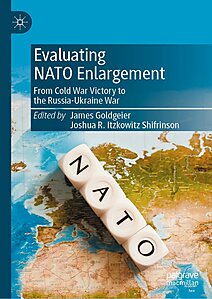Over the span of 30 years, NATO went from an alliance of 16 states optimized to contain the Soviet Union to a grouping of 31 (soon to be 32) states spread across Europe, divided by threat perception and capability. In Evaluating NATO Enlargement: From Cold War Victory to the Russia-Ukraine War, Cato nonresident senior fellow Joshua Shifrinson and coeditor Jim Goldgeier of the Brookings Institution capture the debates about the effects of NATO enlargement and the alliance’s impact on European and global security. On the eve of NATO’s annual summit and at a time when debates over NATO’s role in the Russia-Ukraine war hang over international politics, please join us for an online book forum with Shifrinson, Goldgeier, and two of the volume’s contributors for a discussion of how NATO enlargement has affected U.S. national security, transatlantic politics, and relations with Moscow.






